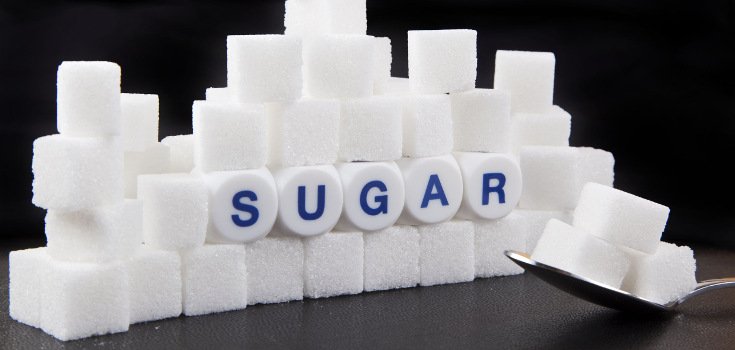What Happens When You Give Up Sugar for an Entire YEAR?

For most people the idea of giving up sugar for an entire year is more than daunting. It isn’t as if you would just give up your favorite dessert, but you would also have to give up almost every food sold in the grocery store (…almost every food). To a woman named Eve Schaub, this was not an insurmountable task, but her family’s journey into no-sugar-land was quite eye-opening.
Eve used to think that being tired all the time was just part of the over-worked American’s lifestyle – something we all suffered from together, so at least misery had company. But she started reading about the effects of sugar on the body and mind. She then decided to do an experiment in which her family was entirely involved.
For one year, they decided not to eat any sugar unless is was attached to its original package – like a piece of fruit – that meant no honey, no molasses, no high fructose corn syrup, no organic cane sugar, etc.
Approximately 34% of Americans have metabolic syndrome. One in three Americans is obese. The rate of diabetes is skyrocketing, and cardiovascular disease is America’s number one killer. That’s a lot of motivation to give up sugar even if it appears in almost every drink or packaged food sold in America.

Even foods you wouldn’t think have added sugar, do. Manufacturers use sugar to make foods taste better, but as Schaub found out in her one-year-with-no-sugar-journey, after a while, even your favorite desserts start to taste sickeningly sweet, give you a headache, and zap all your energy.
Read: 5 Things that Happen if You Quit Sugar for Life
Schaub noticed her daughter missed fewer days of school when they went off sugar, her energy levels soared, and many health problems her and her family had suffered magically disappeared.
It is no wonder that quitting sugar had such a profound effect on Eve’s family. Eating sugar makes you crave more sugar, and experts have described the addiction to sugar as no less debilitating than an addiction to crack cocaine – the brain even processes the desire to eat sugar in the same way!
Here is a list of sugar names, courtesy of CommonSenseHealth.

The first step to ridding your diet of excess sugar even if you aren’t planning to go completely sugar free is knowing where it lurks.

A bit of feedback on this article. Not all good, but don’t take the negative criticism personally.
I’m wondering if there is something wrong with the idea of presenting an article like this one in a single cohesive writing. The web page is broken up with ads and dysfunctional and unrelated distractions. I also would have liked to have seen more depth in this article. I think the subject is important, but needs to be addressed more seriously and more completely. In my opinion.
Eliminating all white sugar and HFCS was a major part of further cleaning up my diet 5-6 months ago. The change brought a half-dozen health benefits I was not expecting. A major one is that a knee that has been a problem most of my life and kept me from running in the last 15 years is healing now, and I can run again. I got a cold a couple of months ago, but it never got past pip-squeak size, and it was of no consequence. Later I got a UTI, and my body fought it off in two days without antibiotics or any special foods or drinks. A years-long skin problem on my face is mostly gone. I had some fogging in one eye, and now it’s greatly reduced. My energy has not been affected though, because I had already been careful about keeping the glycemic index of my foods down for many years.
The above list of sugar names erroneously lists fruit juice as a sugar. Wrong! Fruit juice is a natural food product that happens to contain naturally-occurring, harmless fructose (the overwhelming scientific literature is fairly clear on this). With the logic of including a food in this list, you should list fruits and vegetables, since they also contain fructose!